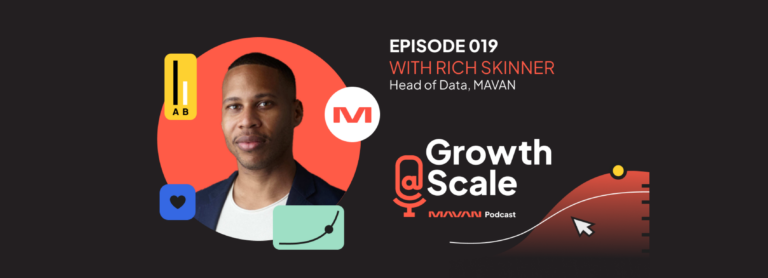Growth at Scale: Leveraging Data for Sustainable Business Growth
In this episode of Growth@Scale, Rich Skinner, MAVAN’s Head of Data, delves into the critical role of data in driving sustainable business growth, sharing insights from his rich experience across leading companies. Learn about the common pitfalls in data strategies, the indispensability of experimentation, and how to cultivate a culture of testing and learning to achieve scalable success.

